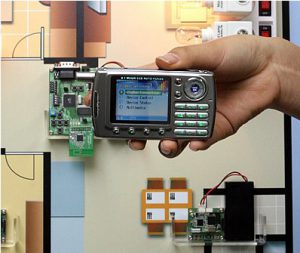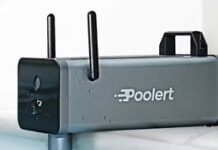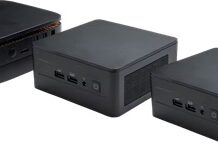
Wireless home security systems have a lot to offer when compared to traditional hard-wired systems. But there are some things you should know before you buy one.
If you are looking into a home security solution for your home, then you will undoubtedly come across a variety of wireless home security systems amongst all of the traditional hard wired systems. Wireless home security systems are beginning to take over the home security market for many reasons. But not all wireless systems will be the best solution for every home. In this guide let’s go over some of the pros and cons of owning a wireless home security system, as well as provide tips of what to look for in obtaining a truly effective setup for your situation.
The one big advantage in going with a wireless home security system over a hard wired setup is in the installation cost. You will save money in installation costs by going wireless. In fact, if you can hang a picture on the wall, odds are you can install a wireless security system yourself. With a wireless security system there are no wires to run other than the electrical cord on the control interface. You’ll likely just need to be able to screw in a sensor here and there, or in some cases just stick it on via the adhesive backing. That means you or a paid installer won’t have to drill through walls, concrete, steel, fish for and run wires through walls, and hook everything up to your home’s power box which could even need a costly electrical addition. The larger the property usually also means the bigger the savings when it comes to wireless home security installation.
However, when it comes to large and/or difficult installations, you will want to make sure that you get a powerful enough home security system for the job. Generally a 2-Ghz system or stronger should be able to keep constant contact with its sensor components through a variety of dense building materials on up to an acre’s worth of property. While most single family homes should do fine with a 1-Ghz receiver.
In recent years wireless home security systems have improved significantly to the point where they can incorporate all of the features a hard wired system can. You can use traditional seal / trip sensors, passive infrared motion detectors, lighting controllers, smoke and carbon monoxide detectors, and even closed circuit cameras.
When it comes to choosing the wireless home security system that is proper for you, you will want to consider what options are best for your needs. Generally a system that supports a variety of different sensor and detector options is a good choice. That way you can add onto the system as you see fit, and further improve the overall safety and security of your home. While you might not want to have a motion detector in every room in your house (Especially if you have pets), you likely will want to have at least one or two in areas where some of your most valuable items are kept such as the master bedroom or office. Also you will want to consider if you want to hire a professional service to monitor your home’s security system as not all wireless systems will support such monitoring.
There are also other options in a wireless home security system that you should consider. It is definitely wise to invest in a setup that has a good battery backup system that will continue to protect you and your home in the event of a power outage or attempt at circumvention by a home intruder. One disadvantage of a wireless home security system is that the sensors and detectors will run off of batteries. So look for a system that can also alert you about low batteries, or at least make sure that you regularly test your system and replace the batteries at regular intervals.











